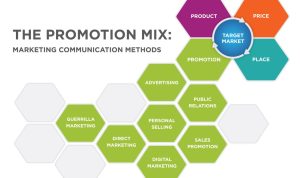The Role of Certifications in Health Product Sales is increasingly vital in today’s market where consumers are more health-conscious than ever. Certifications not only serve as trust signals but also provide a competitive edge for products in a saturated industry. As companies strive to meet regulatory standards and consumer expectations, understanding the significance of these certifications becomes essential for both producers and buyers alike.
In an age where misinformation can spread rapidly, having a certification can reassure customers of a product’s safety and efficacy. This overview dives into how these certifications influence purchasing decisions, create accountability, and enhance the credibility of health products, ultimately impacting sales performance and consumer trust.
In today’s fast-paced world, having a solid grasp on various aspects of life is essential for personal growth, productivity, and overall well-being. Whether it’s mastering time management, enhancing communication skills, or cultivating a healthy lifestyle, understanding and implementing effective strategies can lead to profound changes. In this article, we will delve into the various dimensions of self-improvement, offering insights and practical tips to help you navigate your journey toward success.### Time Management: The Key to ProductivityTime management is a critical skill that can dramatically affect the outcomes of our daily lives.
With the constant barrage of tasks and responsibilities, it can be easy to become overwhelmed and lose track of priorities. To combat this, consider adopting a few foundational techniques.
1. Prioritize Tasks
The first step in effective time management is to create a list of tasks, categorized by urgency and importance. The Eisenhower Box is a well-known method that divides tasks into four quadrants: urgent and important, important but not urgent, urgent but not important, and neither urgent nor important. By visualizing where your tasks fit, you can better allocate your time.
2. Set Specific Goals
Having clear, achievable goals can provide direction and motivation. Use the SMART criteria—Specific, Measurable, Achievable, Relevant, and Time-bound—to frame your goals. By doing so, you create a roadmap for your journey, making it easier to stay focused and accountable.
3. Use Time Blocks
Consider implementing the time-blocking method. Allocate specific blocks of time to dedicated tasks or projects. This not only helps you concentrate better but also minimizes the risk of distractions. During these blocks, turn off notifications and create an environment conducive to deep work.
4. Review and Reflect
At the end of each week, take time to review what you’ve accomplished versus what you planned. Reflect on what worked and what didn’t. This practice allows for continuous improvement and helps you adjust your strategies accordingly.### Effective Communication: Building Stronger RelationshipsCommunication is a fundamental aspect of human interaction. Whether in personal or professional settings, effective communication fosters understanding and collaboration.
Here are some tips to enhance your communication skills:
1. Active Listening
One of the most crucial aspects of communication is listening. Practice active listening by giving your full attention to the speaker, maintaining eye contact, and nodding to show understanding. This not only builds rapport but also ensures that you fully grasp the message being conveyed.
2. Clarity and Conciseness
When it’s your turn to communicate, aim for clarity and brevity. Avoid jargon or overly complex language that may confuse your audience. Instead, articulate your thoughts clearly and concisely to ensure your message is understood.
3. Non-Verbal Communication
Remember that communication extends beyond words. Pay attention to your body language, facial expressions, and tone of voice. These non-verbal cues can significantly impact how your message is received, so be mindful of them during conversations.
4. Empathy
Practice empathy by trying to understand the emotions and perspectives of others. This can create a safe space for dialogue and help resolve conflicts amicably. Showing empathy not only improves your relationships but also fosters a positive environment.### Cultivating a Healthy LifestyleAdopting a healthy lifestyle is integral to achieving sustained personal and professional success. It involves making conscious choices about nutrition, exercise, and mental health.
Here are some strategies to help you cultivate a healthier lifestyle:
1. Balanced Nutrition
Focus on a balanced diet that includes a variety of fruits, vegetables, whole grains, and lean proteins. Avoid highly processed foods that can lead to energy crashes and health issues. Meal prepping can help you maintain healthy eating habits and save time during busy days.
2. Regular Exercise
Incorporate physical activity into your routine, whether it’s through gym workouts, outdoor activities, or simply taking a walk. Regular exercise boosts not only physical health but also mental well-being. Aim for at least 150 minutes of moderate-intensity aerobic activity each week.
3. Mindfulness and Stress Management
Practicing mindfulness can significantly reduce stress and enhance focus. Techniques like meditation, yoga, or simple breathing exercises can help you stay grounded and present. Make it a habit to take short breaks during the day to practice mindfulness and recharge.
4. Quality Sleep
Never underestimate the power of quality sleep. Aim for 7–9 hours of quality sleep each night to allow your body to recover and rejuvenate. Establish a consistent sleep schedule, create a restful environment, and limit screen time before bed to improve sleep quality.### Personal Development: A Lifelong JourneyPersonal development is an ongoing process of self-discovery and growth. It encompasses various aspects, including emotional intelligence, self-awareness, and professional skills.
Here’s how you can embark on your personal development journey:
1. Self-Assessment
Start by assessing your strengths and areas for improvement. Tools like personality assessments or feedback from peers can provide valuable insights. Understanding yourself better allows you to set more informed goals for your development.
2. Lifelong Learning
Commit to lifelong learning by seeking out new knowledge and experiences. This can involve formal education, online courses, workshops, or simply reading books related to your interests. The more you learn, the better equipped you become to tackle challenges.
3. Networking
Build a strong network of like-minded individuals. Surrounding yourself with positive influences can inspire you to grow and stay motivated. Networking can also open up opportunities for collaboration and new experiences that contribute to your personal development.
4. Embrace Challenges
Don’t shy away from challenges; instead, view them as opportunities for growth. Embracing challenges encourages resilience and adaptability, essential traits for success in any endeavor. Reflect on past challenges you’ve overcome and use those experiences to build confidence.### Conclusion: Your Path to SuccessIn conclusion, the journey of self-improvement is a multifaceted process that involves mastering time management, enhancing communication skills, cultivating a healthy lifestyle, and committing to personal development.
By implementing the strategies Artikeld in this article, you can create a solid foundation for success in your personal and professional life. Remember, change takes time, so be patient with yourself as you navigate this journey. Embrace the process, celebrate your progress, and continue striving toward your goals.
Q&A: The Role Of Certifications In Health Product Sales
What types of certifications are important for health products?
Common certifications include FDA approval, GMP (Good Manufacturing Practices), and NSF certification, each ensuring different aspects of product safety and quality.
How do certifications affect consumer purchasing decisions?
Consumers often rely on certifications as indicators of product quality and safety, making them more likely to purchase certified products over non-certified alternatives.
Are certifications expensive to obtain for health product companies?
The costs can vary widely depending on the type of certification and the requirements involved, but many companies view them as a worthwhile investment in credibility.
Can health product certifications expire?
Yes, many certifications have expiration dates and require periodic renewal to ensure ongoing compliance with current standards.
Do all health products need certifications to be sold?
While not all health products are required to have certifications, having them can significantly enhance marketability and consumer confidence.
Post Views: 109







